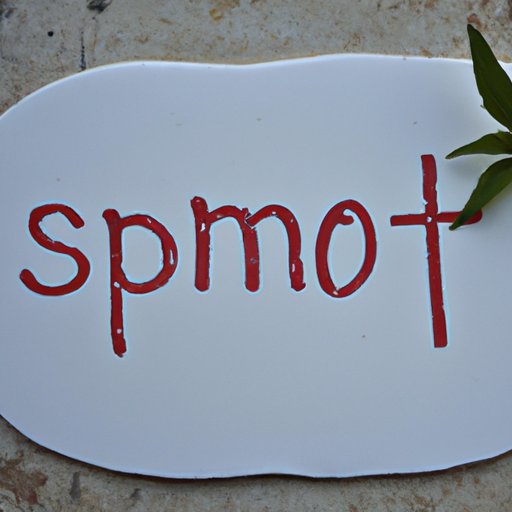
How to Stop Cramps on Your Period
Menstrual cramps are an all too common issue for many women. They can range from mild discomfort to severe pain that disrupts daily activities. It is important for women to have a toolbox full of effective remedies to alleviate cramps and minimize their impact on daily life. In this article, we will discuss some ways to stop cramps on your period, including effective stretching, regular exercise, applying heat, changing your diet, over-the-counter medication, stress-reducing tips, and herbal remedies.
Effective Stretching
Stretching may not be the first thing that comes to mind when thinking of ways to relieve menstrual cramps, but it is a simple and effective method. Stretching helps to improve blood flow and reduce muscle tension, which can help alleviate cramps. Here are some stretching exercises:
- Belly breathing: Lying down on your back, place your left hand on your belly and right hand on your chest. Take deep breaths into your belly, feeling it rise and fall with each inhale and exhale.
- Butterfly stretch: Sit on the floor with your feet together, knees bent out to the side. Gently press your knees down towards the floor and hold for 20-30 seconds.
- Legs-Up-The-Wall pose: Sit with your side against a wall, then swing your legs up the wall while lying on your back. Hold for 5-10 minutes.
It is essential to listen to your body while stretching and never push yourself too hard. If you feel pain, stop stretching immediately and try a different exercise that feels comfortable.
Regular Exercise
Regular exercise can help alleviate menstrual cramps by increasing blood flow and reducing stress levels. Light workouts such as yoga or Pilates can be done at home and can be very effective in reducing cramps. Here are some workouts women can try:
- Yoga: Many yoga poses such as the cobra pose or the child’s pose can help relieve menstrual cramps.
- Pilates: Exercises such as pelvic tilts, bridge pose, and cat and cow stretch can be helpful in reducing cramps.
It is essential to check with a healthcare provider before starting any new workout routine.
Applying Heat
Heat therapy is an effective method to reduce menstrual cramps by relaxing the muscles and increasing blood flow. Here are some ways women can apply heat:
- Warm bath: Taking a hot bath can be soothing and relaxing, helping to alleviate cramps.
- Use a heating pad: Applying heat directly to the lower abdomen can help reduce pain and discomfort.
Women should never apply heat for more than 20 minutes at a time, and they should make sure the heat source doesn’t burn their skin.
Change Your Diet
What you eat has a significant impact on menstrual cramps. There are foods women should avoid or consume during their period. Here are some suggestions for a period-friendly diet:
- Leafy greens: Eating leafy greens such as spinach, kale, or collard greens helps replenish iron that is lost during menstruation.
- Magnesium-rich foods: Foods rich in magnesium, such as nuts, seeds, and legumes, can help reduce menstrual cramps.
- Stay hydrated: Drinking plenty of water can help prevent cramps and reduce bloating.
It is also essential to avoid foods high in sugar or processed food as they can increase inflammation and worsen abdominal cramps.
Over-the-counter Medication
Nonsteroidal anti-inflammatory drugs (NSAIDs) such as ibuprofen or naproxen are commonly used to relieve menstrual cramps. Women can take these medications following the recommended dosage on the packaging. However, prolonged use of NSAIDs might have adverse effects, and women should speak to their healthcare provider if their pain becomes severe and persistent despite the medication.
Stress-Reducing Tips
Stress has a significant impact on menstrual cramps among women. Stress increases muscle tension and cortisol levels, causing abdominal muscles to contract further, thus intensifying menstrual cramps. Therefore, reducing stress is an effective way to reduce menstrual pain. Here are some stress-reducing tips:
- Deep breathing exercises: Controlled, deep breathing can help relax muscles and reduce stress.
- Meditation: Meditation can help calm the mind and improve relaxation.
- Get enough sleep: Getting enough sleep during menstruation can help reduce stress and cramps.
Herbal Remedies
Some herbs have anti-inflammatory properties and can help reduce menstrual cramps. However, women with pre-existing medical conditions should consult their healthcare provider before using any herbal remedy. Here are some herbal remedies that can help alleviate menstrual cramps:
- Ginger tea: Ginger has anti-inflammatory properties that can help relieve abdominal pain. Drinking ginger tea can help alleviate cramps.
- Chamomile tea: Chamomile tea has anti-inflammatory and antispasmodic properties that can help reduce menstrual cramps.
Conclusion
Menstrual cramps can be uncomfortable and painful, but they are common among women. In this article, we have explored some effective ways to alleviate menstrual cramps, including stretching, regular exercises, applying heat, changing diet, over-the-counter medication, stress-reducing tips, and herbal remedies. Women can try different methods to alleviate their menstrual pain and speak to their healthcare providers if their cramps persist or become severe.





